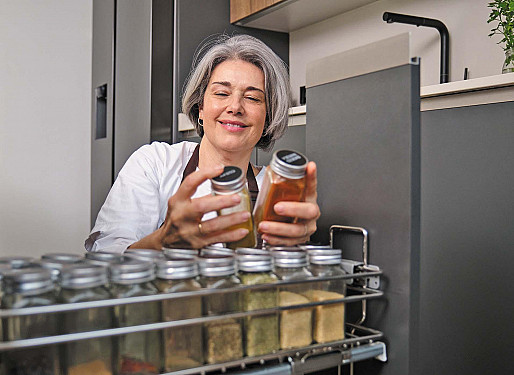Do you need a daily supplement?
Most older adults take some kind of over-the-counter dietary supplement. But are these products right for everyone?

Image: © phototake/Getty Images
Over-the-counter dietary supplements are big business — more than 90,000 products generate about $30 billion every year in the United States. Older adults make up a big part of these sales, too. A survey of almost 3,500 adults ages 60 and older published Oct. 1, 2017, in The Journal of Nutrition found that 70% use a daily supplement (either a multivitamin or individual vitamin or mineral), 54% take one or two supplements, and 29% take four or more.
But are these pills good medicine, or a waste of money?
"Supplements are never a substitute for a balanced, healthful diet," says Dr. JoAnn Manson, a professor of medicine at Harvard Medical School and professor of epidemiology at Harvard's T.H. Chan School of Public Health. "And they can be a distraction from healthy lifestyle practices that confer much greater benefits."
What the science shows
Dietary supplement is an umbrella term that includes everything from vitamins and minerals to botanicals and biosimilar products (such as so-called "natural male hormone"). For the most part, though, people use "supplement" to mean an individual vitamin or mineral preparation or a multivitamin (that is, a product that contains 10 or more vitamins, minerals, or both).
Even though supplements are popular, there is limited evidence that they offer any significant health benefits. In fact, a study published online May 28, 2018, by the Journal of the American College of Cardiology, found that the four most commonly used supplements — multivitamins, vitamin D, calcium, and vitamin C — did not protect against cardiovascular disease.
So why do so many people take supplements if the health benefits are negligible or nonexistent for the average, healthy person? "People often think of them as something extra they can do to be sure their basic nutritional needs are covered," says Dr. Manson. There's also a possible placebo effect to taking supplements, she adds. "People feel healthier if they do something they believe makes them healthy."
The greatest issue with supplements is that they are not regulated by the FDA. "Supplements can appear on the shelf without having to prove they offer any benefits," says Dr. Manson. "With limited regulation and oversight, it's also difficult to know for certain that the supplement contains the ingredients on the label and is free of contaminants."
It's not all bad news, though. For instance, some research has shown that folic acid and B-complex vitamins may reduce the risk of stroke. Also, the Physicians' Health Study II, published in 2012 by Harvard researchers, found that men who took a daily multivitamin for 11 years had an 8% lower risk of cancer and a 9% lower risk of cataracts compared with a placebo group.
Possible health risksMost supplements are safe to take, but there are exceptions. For example:
|
A role for high-risk groups
Supplements can play an important role for some high-risk groups. For instance, adults diagnosed with osteoporosis may require extra vitamin D and calcium beyond what they get from their regular diet. Supplements also can help people with Crohn's disease or celiac disease, conditions that make it difficult to absorb certain nutrients. People with vitamin B12 deficiency almost always need a supplement.
Some research also has found that a formula of vitamin C, vitamin E, carotenoids, zinc, and copper can reduce the progression of age-related macular degeneration, a major cause of vision loss among older adults. "Moreover, people who are lactose intolerant and do not get enough vitamin D and calcium because they don't eat dairy products also could benefit from supplements," says Dr. Manson.
The message here is that supplements prescribed by a doctor are helpful for people with certain medical issues. Otherwise, it's best to get your vitamins and minerals from food and not a pill.
Disclaimer:
As a service to our readers, Harvard Health Publishing provides access to our library of archived content. Please note the date of last review or update on all articles.
No content on this site, regardless of date, should ever be used as a substitute for direct medical advice from your doctor or other qualified clinician.















